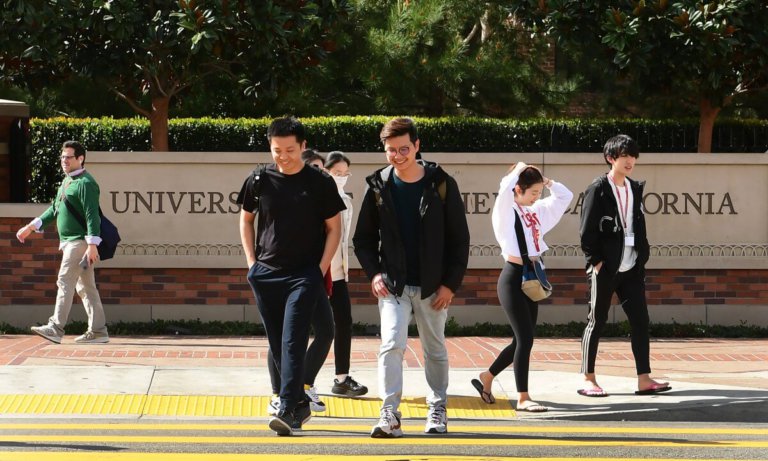
With the COVID-19 pandemic upending life as we know it, university students — including those coming from abroad — may want to brace themselves for the long-term effects of the global health crisis.
Universities all around the world have either cancelled or postponed on-campus activities, while classes have shifted online. There’s no telling how long the pandemic will last, but universities have been mulling various plans in light of this period of uncertainty.
So what does this mean for university students, especially prospective international students who have plans to study abroad in the near future, especially in the US?
Will they need to mentally prepare themselves for online learning, or, should they choose to wait, when can they expect live classes to resume?
What some US universities are doing

The pandemic might affect future student enrolments. Source: Maddie Meyer/ Gerry Images North America/Getty Images via AFP
According to reports, some US universities in the US may not be resuming on-campus classes till next year.
Boston University in Massachusetts has announced via its news site BU Today on April 10 that classes may only open as late as 2021.
They said: “The Recovery Plan recognises that if, in the unlikely event that public health officials deem it unsafe to open in the fall of 2020, then the University’s contingency plan envisions the need to consider a later in-person return, perhaps in January 2021.”
To date, all in-person summer activities have already been cancelled at the university.
Meanwhile, tucson.com notes that the University of Arizona is “cautiously optimistic” the fall semester will resume in-person.
“At this time, we have planned for our summer curriculum to be delivered online through to the end of June. On May 1, we will communicate the decision as to whether summer programming due to start after July 1 will also need to be delivered in online and remote modalities,” said the university in a statement.

Some US universities have suggested that they won’t be opening until next year. Source: MARC WATTRELOT/AFP
Richard Ekman, president of the non-profit Council of Independent Colleges, was quoted saying by Forbes that some of the 659 colleges in his group have begun quietly to consider whether they will have to postpone campus openings.
He added that some are discussing start date delays of a month, while others are looking at more extended closures. “They’re all waiting to get better health information,” he told Forbes.
About one-third of small colleges have cash reserves that would be depleted in less than half a year if they were not able to collect tuition and other revenue from enrolled students, he explained.
Both local and international students who depend on their families to support them through university may also need to rethink their university options.
Ekman said even if classes reopen in the fall, he believes enrolments will likely be down as many families have likely taken a huge financial hit from the pandemic, and may opt to delay college or to attend less expensive public or community colleges.
Liked this? Then you’ll love…
COVID-19: Heartwarming international student stories that will restore your faith in humanity
College interrupted: How are university students in the US coping with the COVID-19 outbreak?







